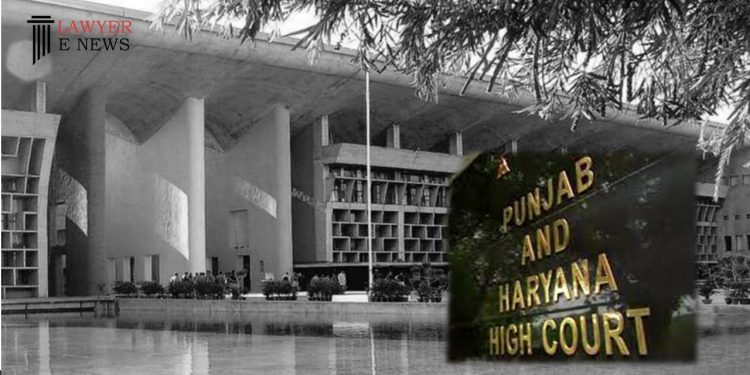Order 1 Rule 10 of the CPC-Court empowered to transfer defendant to plaintiff status for complete justice: P&H HC

P&H HC observed (KEWAL KRISHAN Vs. SARBJEET SINGH & OTH. D.D. 02 Feb 2023) that court has the power to transfer a defendant to the category of plaintiffs and where the plaintiff agrees, such transposition should be readily made if it is necessary to do complete justice between the parties.
Brief Facts
The petitioner/plaintiff had filed a suit against the respondents for possession of land by specific performance of the agreement to sell or, in the alternative, for recovery of Rs. 4 lakhs. The suit was decreed in favour of the petitioner/plaintiff in 2015, against which respondents no. 2 to 4 filed an appeal against the petitioner and respondent no. 1. During the pendency of this appeal, respondent no. 1 filed an application under Order 1 Rule 10 of the CPC for transposing himself as appellant no. 4 and filing his Memorandum of Appeal. The petitioner contested the said application by filing a reply. However, the Ld. Court below allowed the application in the impugned order dated May 25, 2018. Hence, the present revision petition has been filed.
Contentions/Argument
The petitioner argued that the application should not have been allowed as the conditions for transposition have not been fulfilled, and that the issue of fraud raised by the newly transposed appellant requires evidence to be led. The petitioner also contends that respondent no.1 has no common interest with the other appellants, and that the Ld. Court below should have decided the question of fraud before allowing the transposition. The petitioner further argues that respondent no.1 should have filed a separate appeal and that the Ld. Court below has failed to consider the question of limitation. The petitioner contends that the very veracity of the agreement to sell is in dispute and that this is a dispute between brothers, which will affect the petitioner’s interests. The petitioner has paid a sum of Rs.2 lacs as earnest money and the balance amount of Rs.2.44 lacs has also been paid pursuant to the judgment and decree dated 30.10.2013.
The petitioner further argued that respondent no. 1 is not an interested party and that there is no common interest between him and the other appellants. The petitioner’s counsel further submits that the issue of fraud should have been framed and evidence should be led as the newly transposed appellant has levelled allegations of fraud. There is no commonness of interest between the appellants and that the dispute is inter se brothers, and the petitioner has no role in that.
Respondent no. 1 argued that prima facie fraud appears to have been committed against the respondent and that it is open to the Ld. First Appellate Court to frame additional issues, which can be decided by the said court. The respondent’s counsel further argues that all issues can be decided in the present appeal itself to avoid multiplicity of litigation and conflicting conclusions.
Held and Observed By P&H HC
Hon’ble High court observed that the respondent No. 1 is a co-owner of the suit property, and it has been admitted by the petitioner. Therefore, respondent No. 1 is a necessary party to the proceedings, and his rights as a co-owner will be affected.
The court has agreed with respondent No. 1’s submission that filing separate proceedings would lead to multiplicity of litigation and conflicting pronouncements.
P&H High Court held that the alleged signatures of respondent No. 1 on the power of attorney and written statement are apparently different from those on the agreement to sell, and therefore, the commonality of interest between respondent No. 1 and respondent Nos. 2 to 4 and whether fraud was played upon respondent No. 1 will be determined by the lower appellate court. The lower appellate court is required to adjudicate on all the issues raised in the case in order to do complete justice between the parties, and the rights of the petitioner cannot be effectively, fully and finally determined without first adjudicating upon the issues raised by respondent No. 1.
Appeal Dismissed.
Kewal Krishan
Vs.
Sarabjit Singh and others






